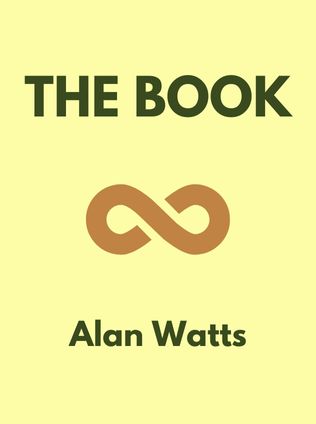
About the Author
Alan Watts was a British philosopher, writer, and speaker, renowned for his ability to interpret and synthesize Eastern spiritual traditions for a Western audience. Born in 1915 in Chislehurst, England, Watts developed an early fascination with Asian philosophy, leading him to explore Zen Buddhism, Taoism, and Vedanta. After moving to the United States in 1938, Watts pursued a varied career that included time as an Episcopal priest, university lecturer, and prolific author. Over his lifetime, he wrote more than 25 books and gave countless lectures, many of which were recorded and remain influential today. His work is characterized by an engaging, conversational style that makes complex philosophical concepts accessible and relevant to contemporary audiences.
Watts's ability to demystify Eastern philosophies and present them in a way that resonated with the Western mind is perhaps best exemplified in his book, The Book: On the Taboo Against Knowing Who You Are. Published in 1966, this work explores the illusion of the individual self and the true nature of human identity, challenging the fundamental assumptions that underpin Western society. Through his eloquent prose and thought-provoking insights, Watts encourages readers to look beyond the ego and embrace a deeper understanding of their place in the universe.
Main Idea
The Book: On the Taboo Against Knowing Who You Are is a profound exploration of the nature of human identity and the illusion of the self. Alan Watts argues that the concept of the individual ego—a separate, isolated entity—is a cultural construct rather than an inherent truth. Drawing heavily on Eastern spiritual traditions, particularly Vedanta, Watts posits that all beings are manifestations of a single, all-encompassing Cosmic Being. This interconnectedness, however, is obscured by what Watts calls the "ego illusion," a perception that alienates individuals from each other, nature, and the universe itself. By challenging these deeply ingrained beliefs, Watts invites readers to experience a sense of unity with all existence, which he believes is the key to overcoming the fear, anxiety, and dissatisfaction that pervade Western life.
Table of Contents
- The Ego Illusion
- Our True Nature: The Cosmic Being
- The Role of Language and Perception in the Ego Illusion
- Western Society's Reinforcement of the Ego
- The Consequences of the Ego Illusion
- Pathways to Embracing the Cosmic Being
The Ego Illusion
The concept of the ego, as explored by Alan Watts, is central to understanding his critique of Western thought. In the Western tradition, the ego is seen as the core of our identity—the "I" that experiences, thinks, and acts independently of the external world. This sense of self, according to Watts, is not an inherent truth but an illusion, a trick of the mind that leads us to believe in our separateness from the rest of existence.
“The myth of the self as a separate ego inside a bag of skin is central to all our Western thought and feelings.” — Alan Watts
Watts argues that this illusion of separateness creates a fundamental disconnect between individuals and the world around them. This disconnect is not just a philosophical or spiritual issue but has practical, everyday implications. It leads to a life characterized by competition, conflict, and a pervasive sense of dissatisfaction. The ego, in its quest to assert its independence, perpetuates a cycle of alienation, where individuals are constantly at odds with their environment, other people, and even themselves.
This "ego trick," as Watts calls it, is deeply embedded in Western culture. From a young age, we are taught to see ourselves as distinct, self-sufficient beings, responsible for our own success and happiness. This belief in the autonomous self is reinforced by societal structures, educational systems, and even our language. However, Watts contends that this perception is a distortion of reality. In truth, no one is an isolated entity; we are all interconnected parts of a vast, dynamic whole—the Cosmic Being.
Our True Nature: The Cosmic Being
Watts introduces the concept of the Cosmic Being as a counterpoint to the ego illusion. In contrast to the Western idea of individuality, the Cosmic Being represents a state of unity and interconnectedness. According to Watts, what we perceive as individual identities are merely temporary expressions of this single, universal consciousness. The boundaries that we draw between ourselves and others, between the self and the environment, are artificial constructs that obscure our true nature.
“You are an aperture through which the universe is looking at and exploring itself.” — Alan Watts
In this view, each person, animal, plant, and even inanimate objects are not separate entities but different manifestations of the same underlying reality. The sense of "I" that we cling to is just one of many roles that the Cosmic Being plays in the grand drama of existence. This perspective challenges the very foundation of Western thought, which is built on the idea of discrete, independent selves.
Watts's conception of the Cosmic Being draws heavily on the Eastern philosophical tradition of non-duality, particularly as articulated in Vedanta. Non-duality, or the belief that all is one, suggests that the distinctions we make between different things—between self and other, life and death, good and evil—are ultimately illusory. In reality, there is only one substance, one reality, and everything we experience is just a different expression of this oneness.
Sign up for FREE and get access to 1,400+ books summaries.
You May Also Like
The Subtle Art of Not Giving a F*ck
A Counterintuitive Approach to Living a Good Life
By Mark MansonRich Dad Poor Dad
What the Rich Teach Their Kids About Money - That the Poor and Middle Class Do Not!
By Robert T. KiyosakiHow To Win Friends and Influence People
The All-Time Classic Manual Of People Skills
By Dale Carnegie



















